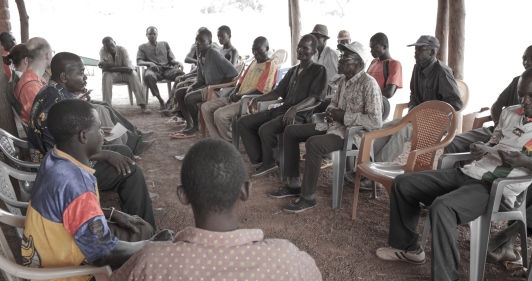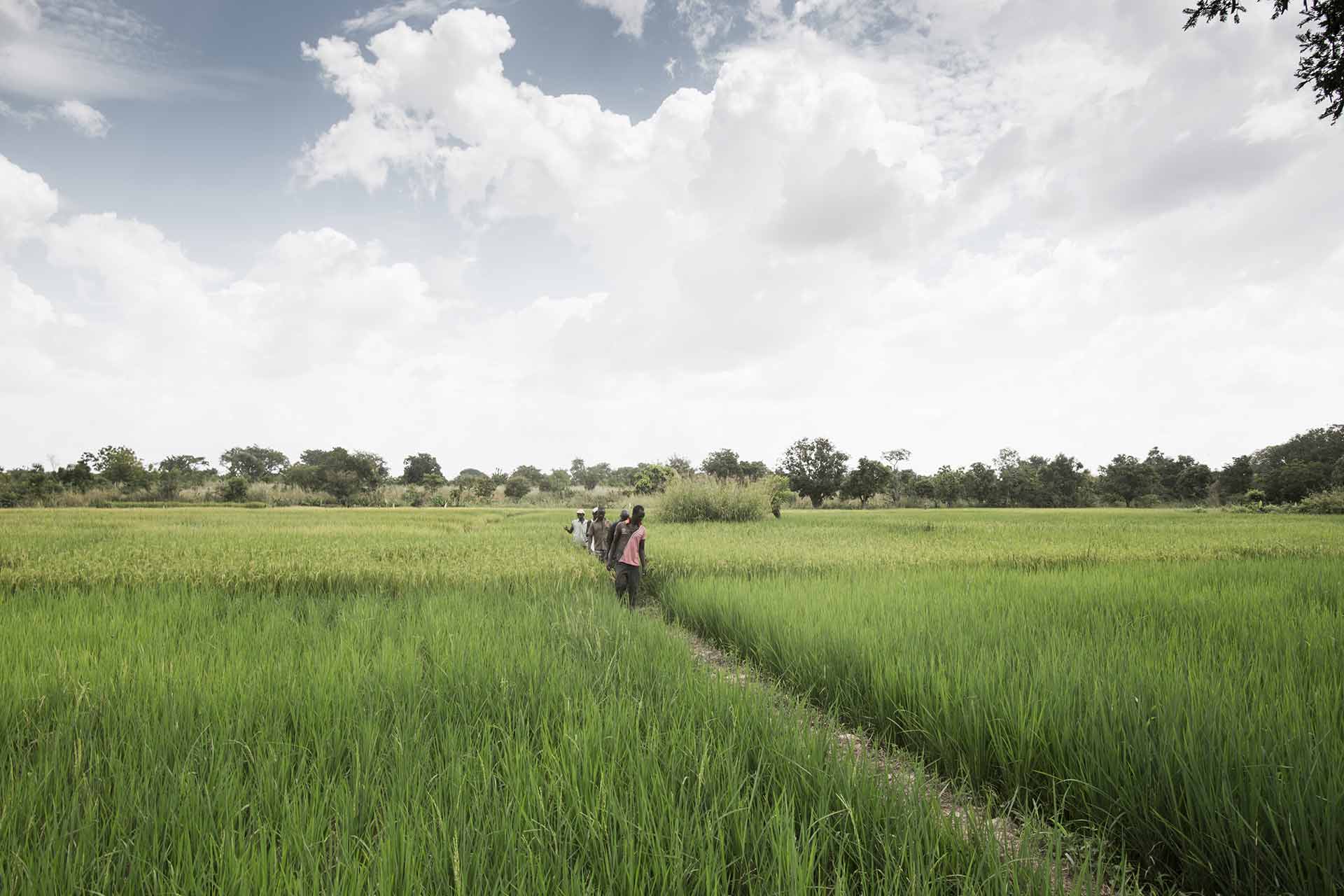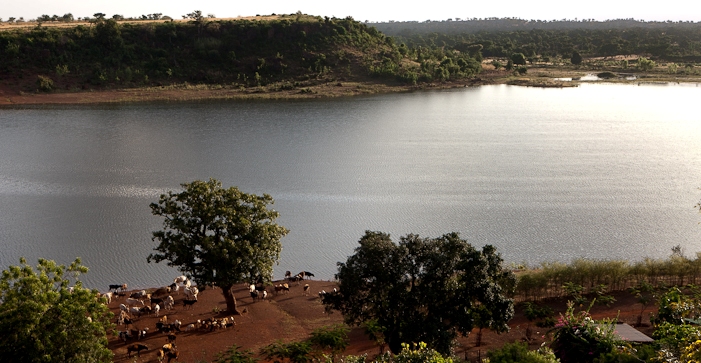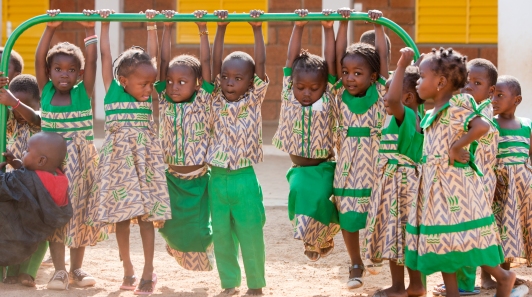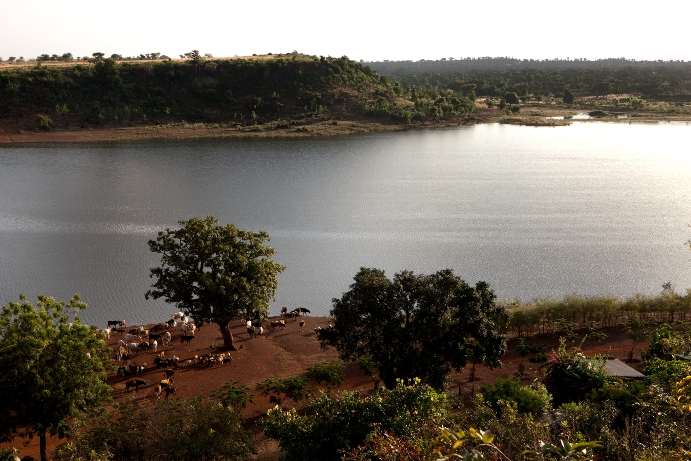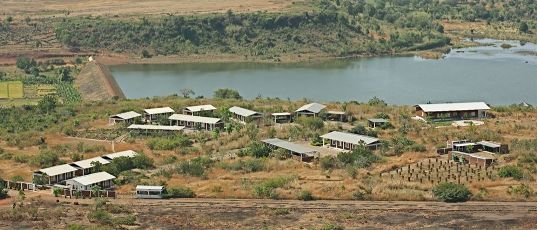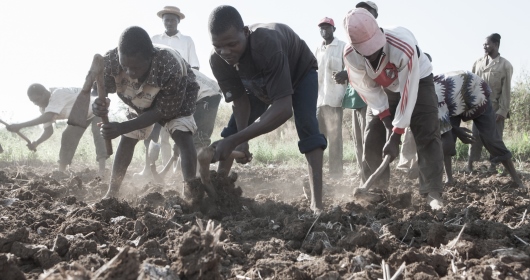
Field Schools in Dano
Agricultural teaching method for training and development of farmers
The agricultural field school is an instrument to distribute knowledge of modern agriculture and is particularly suitable for small farmers. The cooperatives meet once a week (during the entire growing season, that is 25 times a year) at their field.Under the guidance of a coach for agriculture (a farmer, who is fully proficient in handling the techniques of the agricultural field school) and the supervision of a process tutor (agricultural technician or agricultural consultant) they are being taught in modern agricultural practices.
According to this teaching method, the field is the most important learning medium. Farmers learn to use their own observations and studies as a starting point for innovations. Furthermore they learn to deal with problems regarding various plant diseases or vermin and are taught a careful handling of chemical pesticides. The principals of biological cultivation are a main topic. Through this integrated approach the harvest increases and long term soil fertility can be preserved at the same time (holistic approach). Within those training measures, farmers are being qualified not only in agricultural engineering but also in the organization of associations, administrative and financial management and controlling for agricultural enterprises.
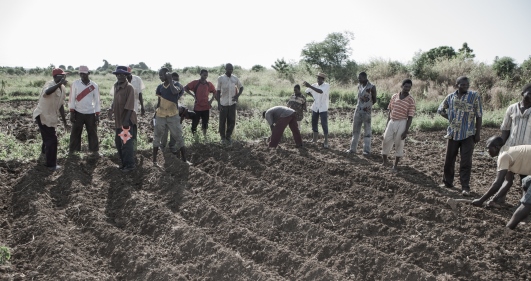
Those qualification measures for farmers include among other things these following topics:
| Preparation of fields | |
|
Sowing and cultivation |
|
|
Adapted innovative agro-techniques with new plant varieties |
|
|
Adapted usage of fertilizers and pesticides |
|
| Implementation of biological cultivation | |
| Adapted harvesting methods | |
| Innovate post-harvesting methods, storage, preservation, processing | |
| Organization of cooperatives, rights and obligations of members | |
| General administration, financial management, controlling, profitability calculations |
